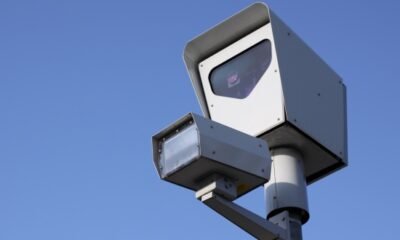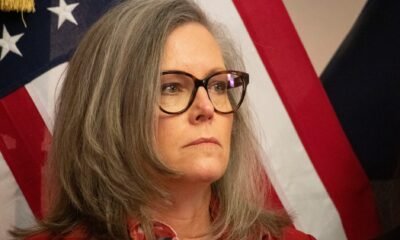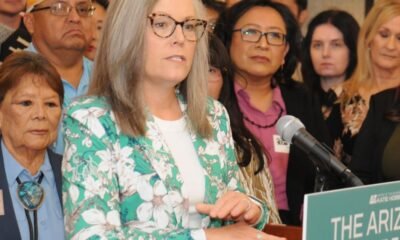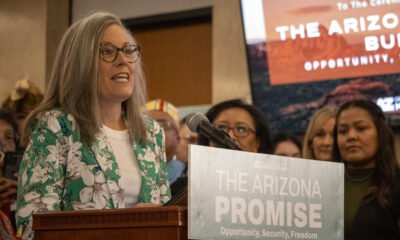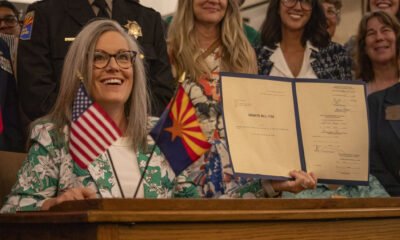2025 legislative session
Gov. Katie Hobbs Shuts Down All Bills for the Session

Governor Katie Hobbs has set a new record this legislative session by vetoing 178 bills. This surpasses her previous record and highlights her assertive stance on various legislative proposals.
Among the vetoed measures were attempts to expedite election results and abolish photo enforcement for traffic violations. Despite the potential for quicker returns, Hobbs rejected Senate Bill 1001, citing concerns it could disadvantage late voters.
Hobbs’s vetoed legislation arrived just before the Legislature wrapped up on June 27. This includes a controversial measure from Sen. Wendy Rogers, which sought to eliminate photo enforcement entirely.
Rogers argued that automated systems overlook individual circumstances that a police officer might consider. Critics have labeled these systems as profit-driven, arguing they primarily serve to generate revenue for local governments.
Hobbs, maintaining her stance from two years prior, expressed that such measures undermine local law enforcement’s ability to ensure roadway safety. In her veto message, she emphasized the importance of tools that aid in traffic management.
Even with anticipation of a veto, Rogers attempted to present a backup plan to let voters decide on the issue. However, absences among state representatives stymied her effort to gather the necessary votes.
Historically, Arizona has struggled with timely election results, a reputation underscored during the previous two election cycles. These delays often leave citizens in a prolonged state of uncertainty regarding the outcomes.
Sen. J.D. Mesnard has pointed to laws permitting voters to request mail-in ballots yet delay their submission until Election Day, causing logjams. The state sees thousands of ballots dropped off at polling places after verification processes have begun.
In the upcoming 2024 elections, an estimated 265,000 of these ballots are expected, a considerable quantity concentrated in Maricopa County.
Petersen’s initiative to repeal the drop-off option faced immediate resistance, prompting Mesnard to propose a compromise. His plan would still allow ballot drop-offs but include on-site verification to streamline the counting process.
While voters could continue to submit ballots without verification, those requesting on-site checks would be removed from the active early voter list. This stipulation sparked concern from Hobbs, who emphasized the importance of accessibility for all eligible voters.
Hobbs continues to advocate for reforms that harmonize efficiency with voter accessibility. “Every eligible vote should count,” she asserted. “We must balance speed with security and accuracy.”
As the governor looks ahead, she has committed to collaborating with legislators to enhance voting and counting processes in the next session.
